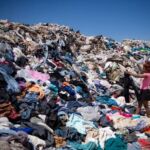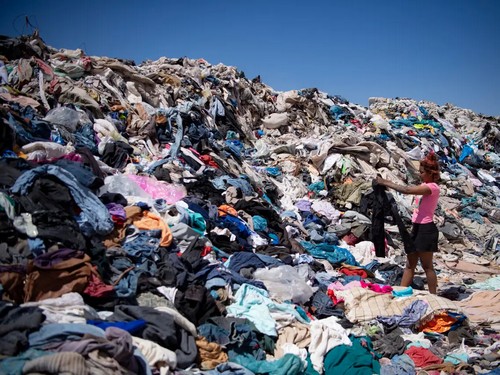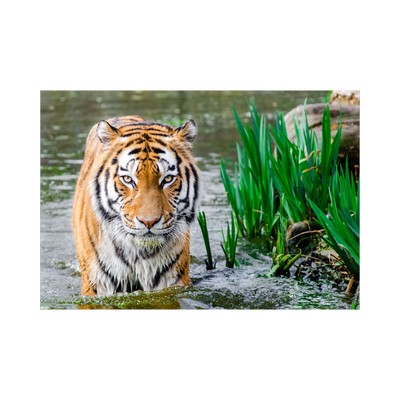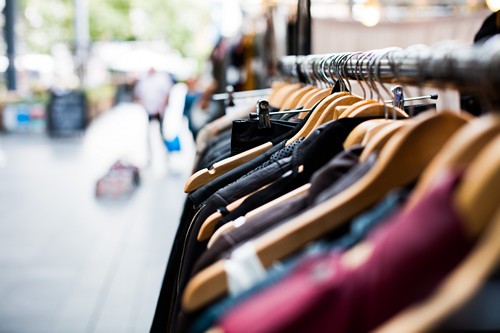
What is Fast Fashion and how can we avoid it?
Fast fashion is a term used to describe the clothing industry business model of replicating recent catwalk trends and high-fashion designs, mass-producing them at low cost, and bringing them to retail stores quickly while demand is highest. – Wikipedia
Over the years the term fast fashion has grown in popularity and now you will find people with wardrobes full of clothes that they have probably worn maybe once or twice.
I remember when I was younger and started taking an interest in clothing and what I wanted to wear. Clothes came out in seasons; we would get a spring collection followed by summer then autumn and winter. During those seasons clothing would get restocked in sizes but little to no new clothes would be introduced over the season. Fast forward to now and we buy our clothing from micro-collections produced for each season, it’s all about buying more and having the latest fashion. So, in essence fast fashion is clothing that’s mass produced quickly, usually sold fairly cheaply and probably disposed of after its first and only wear. Everything changes so quickly but its not always for the best, do we need all of those clothes? How often do you wear each item of clothing? Am I one of the only people that say they still have clothes that are 5 years maybe even 10 years old that they still wear?
We may think it’s great that our wardrobes are bulging and we didn’t spend a fortune, we have the latest up to date style in many different colours and dress just like our favourite celebrity. But do you realise what impact fast fashion is having on the environment, to the health of the people making these garments and ultimately the planet?
- Environmental production impact
- Garment quality
- Toxic Chemicals in fashion
- Inhumane working conditions
Environmental Production Impact
Think of the environmental impact this has, firstly in the production of all of that clothing and then in the space that all of that unwanted clothing takes up in landfill sites. The need to make more and more clothing means that corners are cut to ensure that production remains cheap.
90% of textile is dyed using synthetic dyes these require huge amounts of water and toxic chemicals; then at the end of the dying process any excess or left-over materials generally go back into the natural water system. This creates water sources potentially contaminated with dyes, chemicals and metal residues which in turn is hazardous for anyone that requires or uses the water source.
So where does all of that clothing go that no one wants to wear it anymore; in the US the average person throws away 37kg of clothing each year are you thinking well that doesn’t sound like very much but think of how many people there are in America and that the average t-shirt weighs around 70g it soon adds up. It’s said that the fashion industry creates 92 million tons of textile waste each year and that amount is said to increase. What happens to all of the discarded fashion? Simple answer it’s burned all of the dumped material set on fire creating toxic smoke and fumes and further polluting the environment.
Garment Quality
Fast fashion is made with cheap materials, 94% of fast fashion is made using polyester and other synthetic fabrics. The pieces are stitched together in a matter of minutes in a closely monitored factory process. They are designed and created to be worn once, to be part of a current trend with the idea to dispose of them once that particular trend is over; it doesn’t really matter if they fall apart after the first wear. It’s all about making consumers buy more and more.
Exploiting workers
Fashion is said to be one of the most labour-intensive industries as each garment is hand made as part of what can be a long supply chain. 90% of the worlds clothing is produced in low-income countries, these people endure appalling working conditions for little income. In Bangladesh garment workers take home around $96.00 per month which is no where near enough for them to be able to cover basic needs for the same period. Its mainly all young women who work in the garment industry but in some countries, there has been evidence of forced child labour but there are many charities and initiatives that work to stop this. Its not all about the low income the workers suffer ill health from all the harmful dust and fibres produced by the textiles that they breath in regularly, the lack of air flow helps to contribute to lung complications, cancers and repetitive work adds to physical and mental strains. The unsafe working conditions also provide life threatening situations where there have been factory collapses, deadly fires and many more events where there has been loss of life. All this for the sake of clothing??? It’s a harsh reality and I’m sure the end user isn’t aware of the process or the exploitation.
What can you do to help?
Its all about a shift in mindset, if you would like something new to wear stop before you start looking and ask yourself do you really need it? Look for clothing that’s made from sustainable materials or even better 100% organic fabric. Maybe look for second hand or preloved clothing, look in a charity shop, on Facebook, or ebay there are so many places now that you can buy preloved items. Buy something that you are going to wear more than once in fact something that you will wear more than 10 times. If you still want to buy something new make sure that you are buying a t-shirt that will cost more than the takeaway coffee you bought, at least then you know that it’s come from a company that treats their employees with more respect and isn’t putting them or their environment at risk to supply the fashion industry.
Make your clothes last, give them a long life and buy clothing with a conscience.


